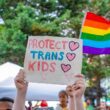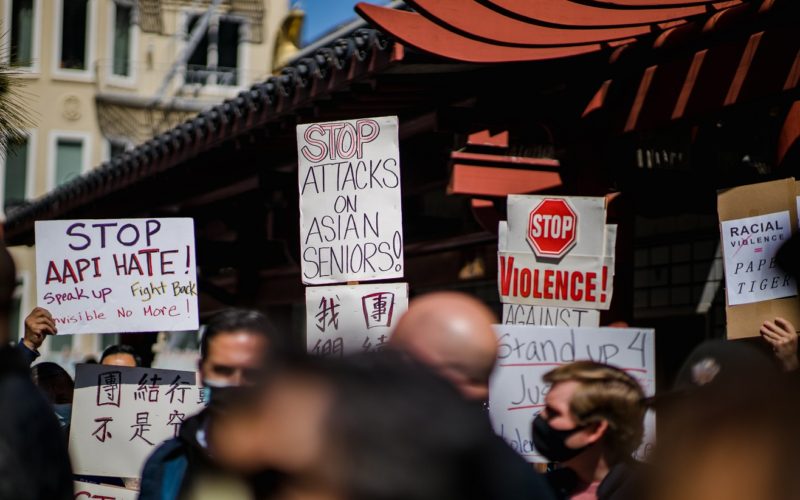Sign up here to receive The Yappie's weekly briefing on Asian American + Pacific Islander politics and support our work by making a donation.
California Gov. Gavin Newsom (D) signed into law Tuesday the “No Place for Hate” bills sponsored by Stop AAPI Hate after Asian American lawmakers introduced the legislation earlier this year. Here's what you need to know.
? The bills explained: Amid the rise in anti-Asian hate spurred by the pandemic, California has seen the largest number of self-reported anti-AAPI hate incidents, according to data compiled by Stop AAPI Hate—4,333 out of almost 11,500 incidents, or nearly 40% of all hate incidents reported to the organization. The pair of bills aim to curb anti-Asian harassment on public transit and in businesses. They’re also part of a broader effort to enact stronger protections for women, LGBTQ+ people, and other vulnerable communities.
- The Expanding Civil Rights Protections at Businesses Bill (AB2448), written by Assemblymember Phil Ting (D), calls on the Civil Rights Department to create a pilot program to recognize businesses that meet qualifying criteria for maintaining environments free from harassment or discrimination.
- The Increasing Safety for Public Transit Riders Bill (SB1161), introduced by state Sen. Dave Min (D) requires the Mineta Transportation Institute to develop a survey for collecting data on how harassment affects transit riders and when/how it occurs. The data-driven approach will inform policymaking recommendations around public safety efforts.
Safety for AAPIs, women, LGBTQ+, and other vulnerable communities: Stop AAPI Hate found that 48.7% of self-reported anti-Asian hate incidents occurred in public spaces, with 8.4% of reported incidents taking place on public transit.
- AAPI women report higher percentages of hate incidents in public streets compared to AAPI men and nonbinary people.
- AAPI nonbinary people report more instances of deliberate avoidance or shunning, being coughed at or spat on, or denials of service compared to AAPI women and men, according to Stop AAPI Hate.
- “Street harassment, including harassment based on sex or race, has unfortunately become far too prevalent … Our public transit systems must be safe and accessible for everyone,” Min said in a statement.
A different approach: When the federal COVID-19 Hate Crimes Act was signed into law in 2021, some activists were concerned the legislation wouldn’t address the root causes of biases against AAPIs and instead encourage more policing.
- Manjusha Kulkarni, co-founder of Stop AAPI Hate, told Spectrum News that the No Place for Hate bills—which could be a model for other states to follow—will aim to serve as “solutions that are not going to criminalize behavior but really change hearts and minds and actions of everyday individuals who engage in that harassment.”
- Caveat: The vast majority of hate incidents are non-criminal behaviors such as verbal harassment, which makes most of these incidents a legal gray area, the San Diego Union-Tribune’s Michael Smolens writes.
Correction: A previous version of this article incorrectly stated that SB1161 will mandate the development of plans to reduce street harassment by June 2025. That mandate was removed during the amendment process.
This story appeared as "The Big Story" in The Yappie's Sept. 12, 2022 newsletter and was updated after California's governor signed it into law on Sept. 13, 2022.
The Yappie is your must-read briefing on AAPI power, politics, and influence, fiscally sponsored by the Asian American Journalists Association. Make a donation, subscribe, and follow us on Twitter (@theyappie). Send tips and feedback to [email protected].









